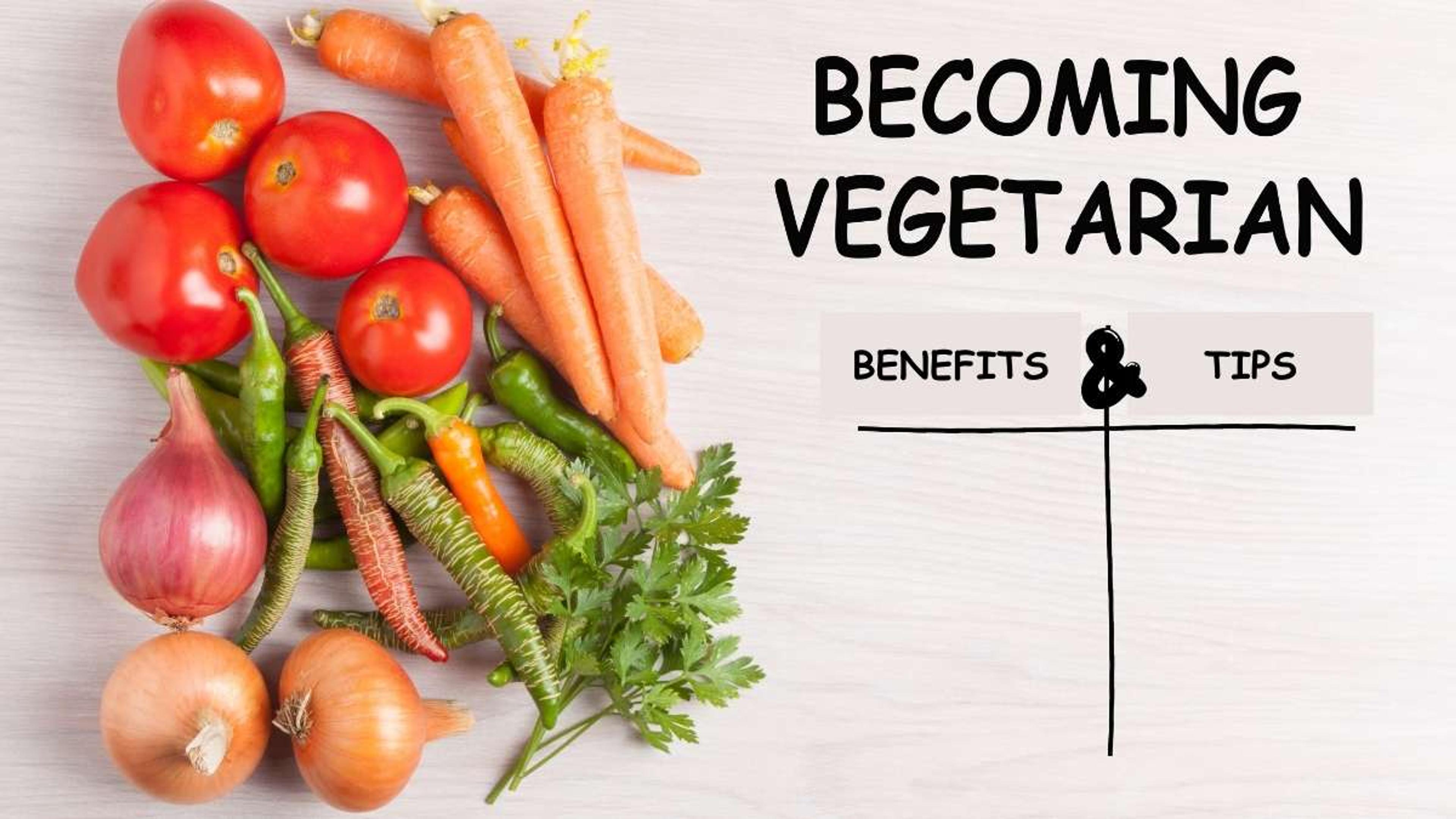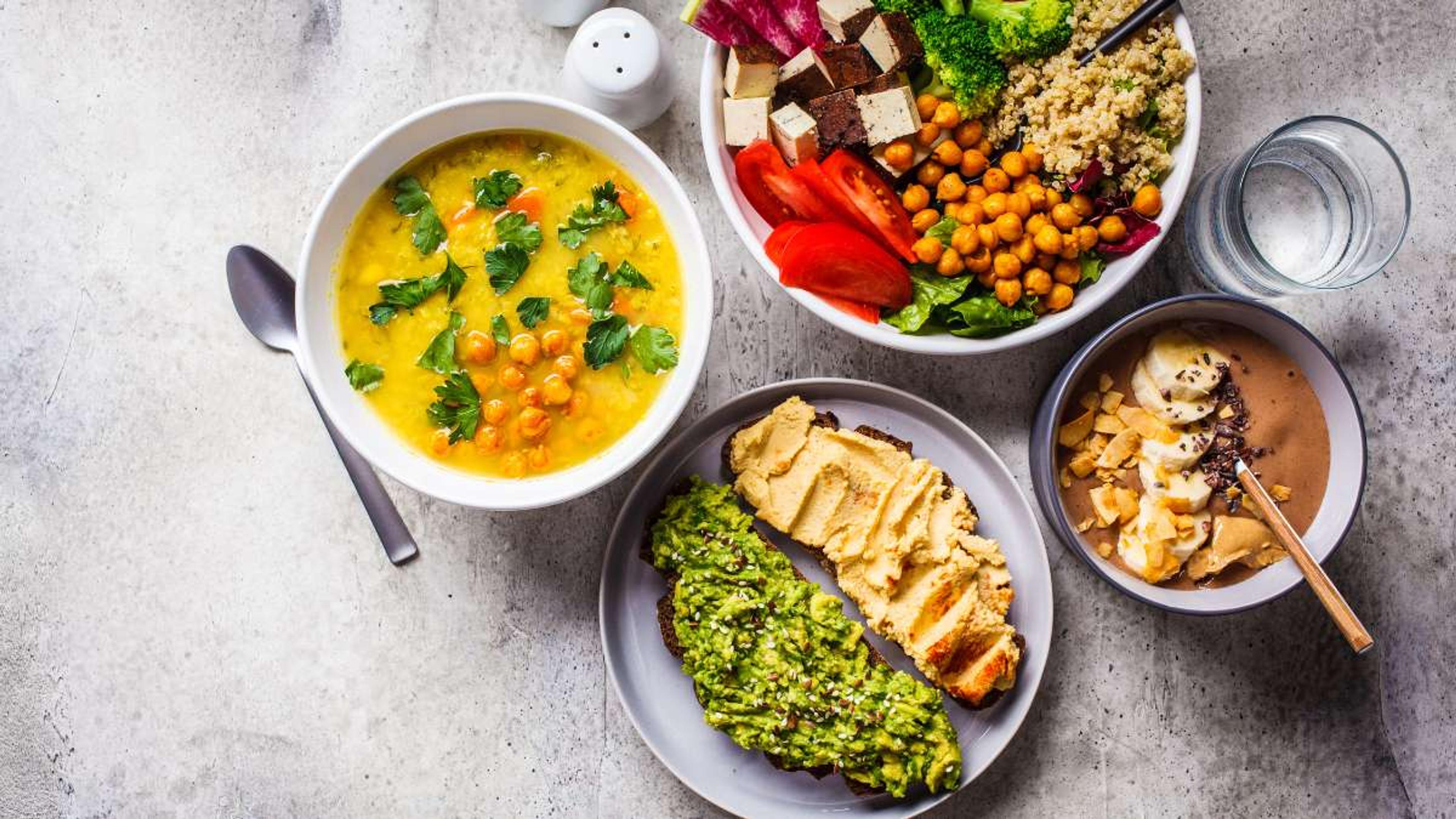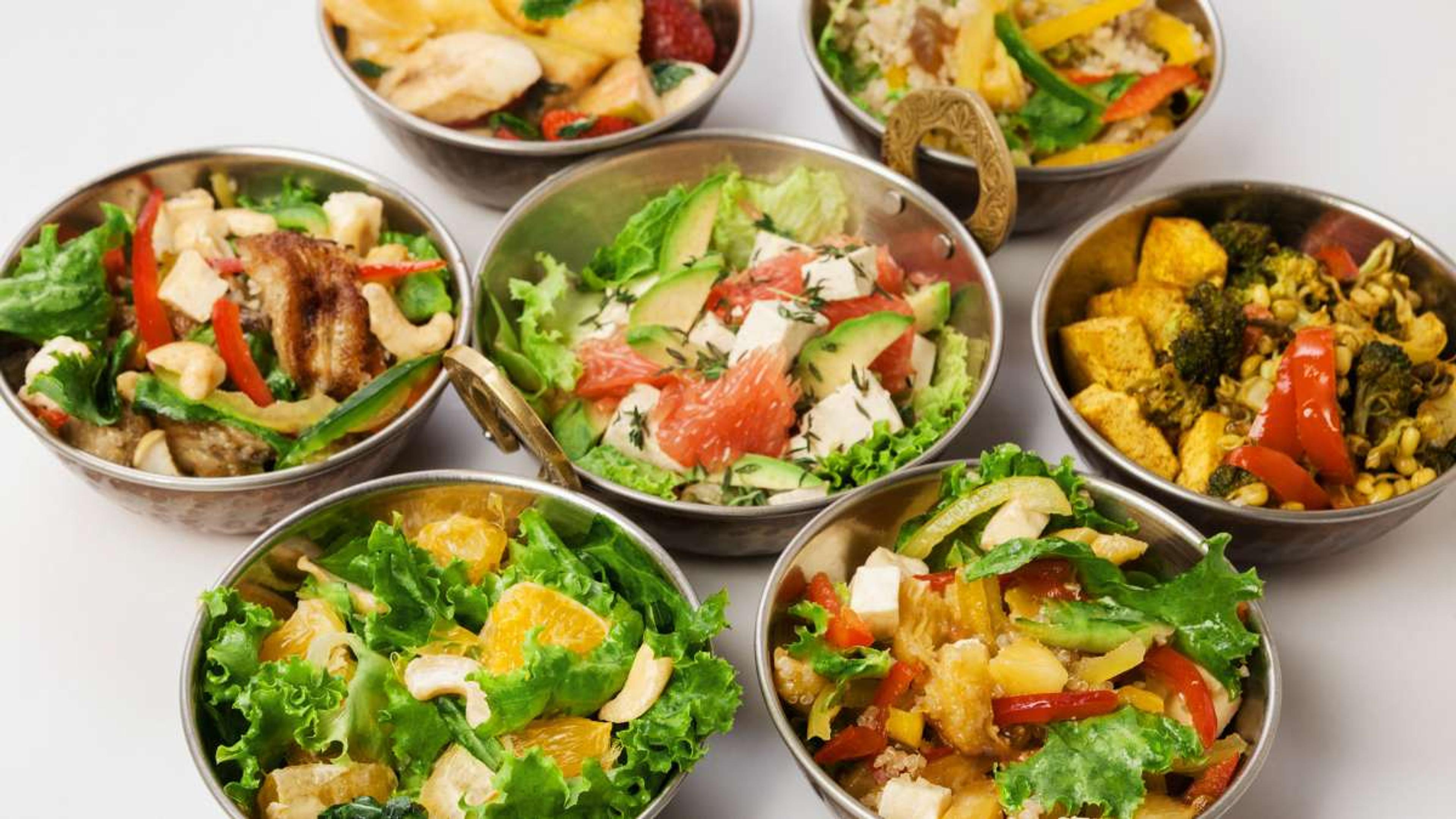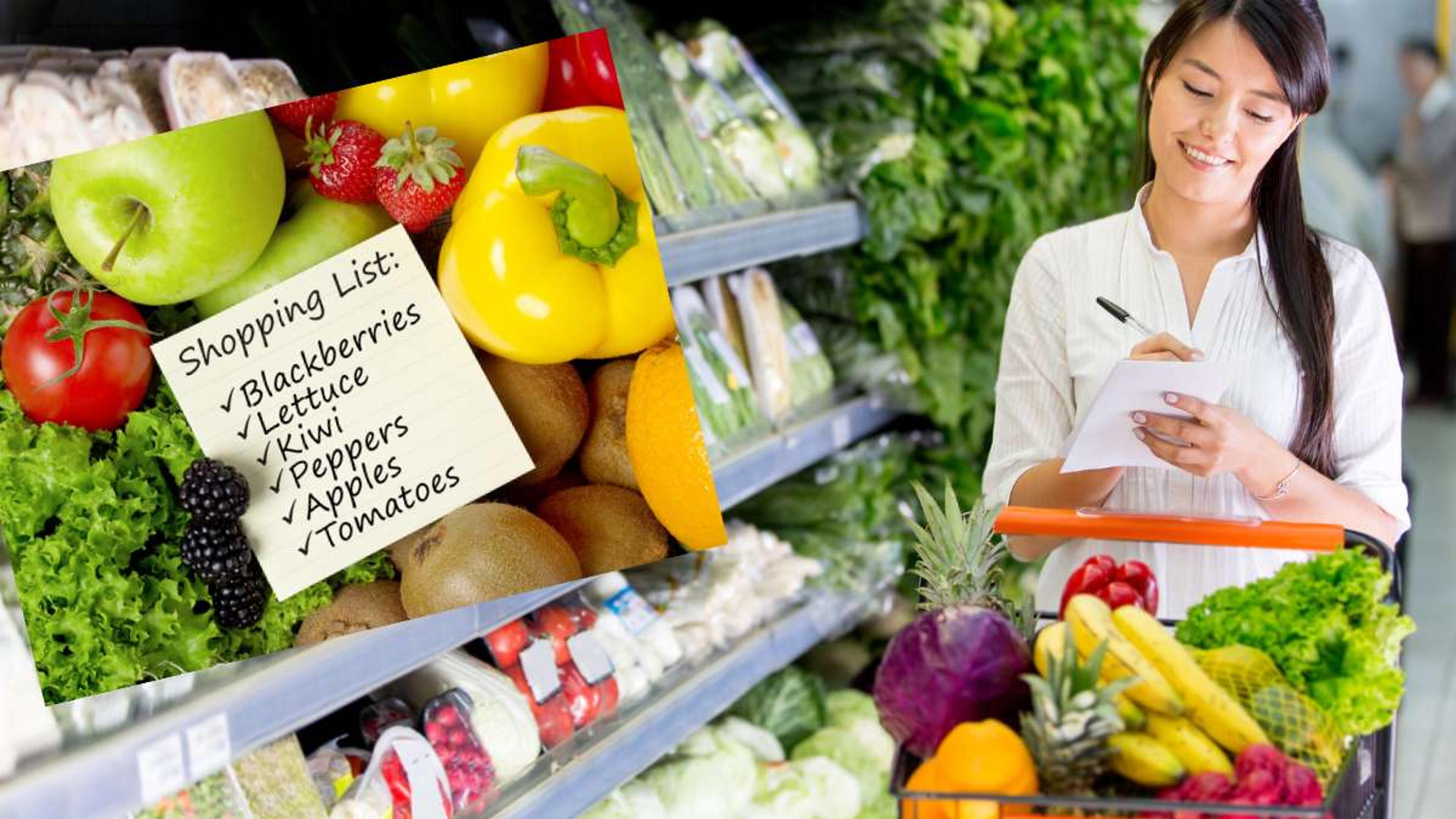How To Become Vegan Slowly: A Beginner's Guide

- Key Takeaways
- Benefits of Transitioning to a Vegan Lifestyle Gradually
- 8 Steps to Becoming a Vegan Slowly
- Educating Yourself on Vegan Nutrition
- 4 Challenges you might encounter when transitioning to a Vegan
- 6 Tips for a Successful Transition
- Seek Support and Resources
- Conclusion
- FAQs
Going vegan can often seem daunting or even overwhelming. Did you know that adopting a gradual approach may make this dietary transition smoother and more sustainable? This article offers an 6-step guide for easing into a vegan lifestyle, reducing the feeling of deprivation, and allowing your body to adjust comfortably.
Ready to embark on your journey towards compassionate eating? Let's dive in!
Key Takeaways
- Start by gradually eliminating animal products from your diet, such as cutting out one type of meat at a time or swapping dairy snacks for vegan options.
- Incorporate more plant-based meals into your diet by including fruits, vegetables, whole grains, legumes, and plant-based proteins like tofu or tempeh.
- Experiment with vegan alternatives and substitutes to recreate your favorite dishes in a plant-based way.
- Educate yourself on vegan nutrition to ensure you meet your nutritional needs and understand labeling and ingredients when making food choices.
Benefits of Transitioning to a Vegan Lifestyle Gradually
Transitioning to a vegan lifestyle gradually allows for the slow elimination of animal products, reducing feelings of overwhelm or deprivation and giving the body time to adjust to new dietary changes.

- Gentle Gut Transition - Gradually shifting from an omnivorous to a vegan diet allows your digestive system to a more diverse intake of essential nutrients and adapt to an increased fiber content found in plant-based foods. This gradual adjustment can help minimize digestive discomfort and promote a healthier gut microbiome, as the complex carbohydrates present in plant foods require time for your body to adjust.
- Balanced Nutrient Intake - Slowly adopting a vegan lifestyle provides the opportunity to learn about diverse plant-based sources of essential nutrients like protein, iron, omega-3 fatty acids, and vitamins. This knowledge empowers you to create well-rounded meals that meet your nutritional needs, reducing the risk of deficiencies commonly associated with abrupt dietary changes.
- Mindful Food Choices - Taking a gradual approach to veganism fosters a deeper awareness of your food choices. As you gradually replace animal products with plant-based alternatives, you become more mindful of your dietary decisions. This mindfulness extends beyond just nutrition, influencing other aspects of your lifestyle and promoting a more holistic approach to well-being.
- Sustainable Habit Formation - Making changes to your diet over time increases the likelihood of forming sustainable habits. By gradually adopting new recipes, exploring plant-based cooking methods, and finding vegan foods you genuinely enjoy, you're more likely to stick with the lifestyle in the long term.
8 Steps to Becoming a Vegan Slowly

1. Identify your motive
Identifying your motive is the first step in transitioning to a vegan lifestyle. It's important to understand why you want to become vegan, whether it's for health reasons, ethical considerations, or environmental concerns.
Knowing your motive will help you stay motivated and focused during the transition. For example, if your motive is improving your health, remind yourself of the benefits such as reduced risk of heart disease and lower cholesterol levels.
If animal welfare is your main concern, educate yourself on the cruel practices involved in animal agriculture. Once you have a clear understanding of your motive, it'll be easier to make informed choices and stick to them throughout your journey towards becoming vegan.
2. Incorporate more plant-based meals
To become vegan slowly, it's important to start incorporating more plant-based meals into your diet. This means including foods like fruits, vegetables, whole grains, legumes, and plant-based protein sources such as tofu or tempeh.
You can begin by trying new recipes that focus on these ingredients once in a while. Gradually reducing the amount of meat and processed foods you consume is also recommended. Making small changes to your everyday meals, like swapping out meat for beans or adding extra veggies to a stir-fry, is an easy way to increase the amount of plant-based foods in your diet over time.
By taking these steps gradually, you can ease into a more plant-based lifestyle without feeling overwhelmed or deprived.
Incorporating more plant-based meals into your diet is an essential step towards becoming vegan slowly. Start by including fruits, vegetables, whole grains, legumes (like beans), and plant-based proteins such as tofu or tempeh in your meals.
3. Slowly eliminating animal products for a sustainable transition
Start by taking small steps. Gradually reducing animal products is an important step in transitioning to a vegan lifestyle. It involves slowly cutting down on the consumption of meat, dairy, and egg products. Cut out one type of meat at a time. If you eat bacon for breakfast and chicken for dinner, stop buying bacon first. Then after some days, when you think its time, try to stop eating chicken.
Do the same with dairy products like milk or yogurt that you eat less often than other foods. Next step is making small changes over time, such as swapping meat for plant-based protein sources like tofu or tempeh, you can ease into a more plant-based diet. Check snacks and see if they have animal ingredients in them. Swap these with vegan snacks from the grocery store.
This way, not only it would allow your taste buds to adjust and helps prevent feelings of deprivation or overwhelm, but it would make moving away from animal food become a little more easier as you are not doing it all at once! Also, nature will thank you for the positive impact on the environment and your role in reducing the number of animals raised and killed for food.
4. Reducing feelings of overwhelm or deprivation
Going slow is key when you switch to a vegan lifestyle. It helps you not feel too stressed or like you're losing out on anything. When you cut out meat, dairy, and other animal foods all at once, it can be hard and you might get upset or worried.
Instead of taking away foods right away, try adding new things first. Get used to eating more veggies, whole grains and legumes before saying no to your old favorites. Try working tofu and tempeh into meals to replace red meat or seafood.
Use nutritional yeast in place of cheese for the same taste without dairy.
The goal is not about giving up things right away but finding new foods that make you happy and healthy!
5. Gradually reduce Dairy and Eggs (If going Fully Vegan)
To become fully vegan, gradually reducing dairy and eggs is an important step. Start by incorporating more plant-based alternatives like almond milk or soy yogurt into your diet. Replace eggs with substitutes like mashed bananas or tofu in baking recipes.
Slowly decrease the amount of cheese, butter, and other dairy products you consume by opting for vegan options when possible. This gradual approach allows your taste buds to adjust and helps prevent feeling overwhelmed by drastic changes.
Remember that there are plenty of delicious plant-based alternatives available to enjoy while still transitioning towards a fully vegan lifestyle.
6. Experimenting with vegan alternatives and substitutes
Transitioning to a vegan lifestyle doesn't mean giving up all your favorite foods. In fact, there are plenty of delicious plant-based alternatives and substitutes available for almost every type of food you can imagine.
Whether it's dairy-free milk options like almond or oat milk, tofu or tempeh as protein sources, or veggie burgers made from plant-based ingredients, experimenting with these vegan alternatives can be a great way to ease into the transition.
Trying new recipes and incorporating these substitutes into your meals will not only help you discover tasty new dishes but also make the switch to a plant-based diet more enjoyable and sustainable in the long run.
7. Veganize favorite dishes
Veganizing your favorite dishes can be a great way to transition to a vegan lifestyle. Instead of completely giving up the foods you love, you can make small changes to make them plant-based.
For example, if you enjoy spaghetti bolognese, try replacing the ground meat with lentils or mushrooms for a delicious and satisfying vegan version. You can also experiment with different plant-based alternatives like tofu, tempeh, or seitan to recreate your favorite meaty flavors and textures.
By gradually swapping animal products for plant-based ingredients in your go-to dishes, you'll find that eating vegan doesn't mean sacrificing taste or enjoyment.
Adding more vegetables and whole grains into your meals is another simple way to incorporate plant-based options. Instead of using dairy milk in recipes like oatmeal or smoothies, try using almond milk or soy milk instead.
These swaps not only add flavor but also help reduce our reliance on animal-derived ingredients. Making these gradual changes allows you to adjust both mentally and physically to a new way of eating without feeling overwhelmed or deprived.
8. Allowing the body to adjust to new dietary changes
Changes in diet need time. Your body must learn to use new foods. Moving from an omnivore's menu to a plant-based diet is one such change. You start eating less meat, dairy, and seafood while eating more veggies, whole grains, legumes and tofu.
This can feel strange at first. As you bring in new food habits slowly, the body adjusts better. The switch to vegan meals becomes easy over time without any big changes all at once.
Educating Yourself on Vegan Nutrition
Learn about the importance of understanding labeling and ingredients, as well as meeting your nutritional needs on a vegan diet. Discover more about vegan nutrition here.

Understanding Labeling and Ingredients
Understanding the labeling and ingredients associated with vegan nutrition is crucial when learning how to become vegan slowly. Reading ingredient lists carefully is essential to identify animal-derived products and ensure that products are truly vegan.
By knowing what ingredients to look out for, such as eggs, dairy products, and animal-based additives like gelatin or honey, you can make informed choices about what you consume. Additionally, learning about plant-based alternatives can help you find suitable replacements for common animal-based ingredients in your favorite recipes.
Educating yourself on labeling and ingredients will empower you to make conscious decisions that align with your vegan lifestyle.
Learning and Ensuring you meet your nutritional needs as a Vegan
To ensure you meet your nutritional needs as a vegan, it's important to educate yourself about the nutrients your body requires. This includes understanding how to get enough protein, iron, zinc, and vitamins A, B, and D from plant-based sources.
Certain nutrients like protein, iron, calcium, zinc, vitamin B12, and vitamin D may be harder to obtain solely from a vegan diet. So eating a wide variety of plant foods is crucial for maintaining a balanced diet.
By learning about nutrition and planning your meals carefully with diverse plant-based options rich in essential vitamins and minerals, you can nourish your body optimally on a vegan diet.
4 Challenges you might encounter when transitioning to a Vegan
Transitioning to a vegan lifestyle can come with its own set of challenges. From potential nutritional deficiencies to social pressure and convenience issues, it's important to be aware of these obstacles.
Discover the common obstacles you might face when becoming vegan and how to overcome them for a successful transition.

1. Nutritional Knowledge Leading to Deficiencies
Avoiding animal foods altogether may lead to nutritional deficiencies in important nutrients like vitamin B12, omega-3 and minerals such as iron, calcium, and zinc.
It's essential for those following a vegan or vegetarian diet to have careful planning to make sure they get enough protein, iron, calcium, and zinc. Though a plant-based diet can be healthy when done right with the right knowledge and consideration of nutrient needs.
2. Lack of Support & Social Pressure
Transitioning to a vegan lifestyle can be challenging when you don't have support or face social pressure from those around you. It's common to encounter skepticism, criticism, or even jokes about your choice to go vegan.
This lack of acceptance can make it harder to stick with your new diet. Practical or emotional support from friends, family, and the vegan community can greatly encourage and motivate individuals on their journey towards becoming vegan.
Having people who understand and respect your decision makes it easier to navigate social situations and find comfort in knowing that you're not alone in this lifestyle change.
3. Convenience and Accessibility
Convenience and accessibility can be potential challenges when transitioning to a vegan lifestyle. Finding vegan options at restaurants, fast food places, or social gatherings may not always be easy.
It might require some extra effort to plan meals and find suitable alternatives in your local grocery stores. However, with the growing popularity of plant-based diets, more options are becoming available.
Additionally, cooking at home allows you to have better control over ingredients and ensure that your meals align with your dietary choices.
4. Slip-Ups, Guilt, and Giving Up
Slip-ups can happen when you're transitioning to a vegan lifestyle. It's okay if you make mistakes, like accidentally eating something with animal products. Guilt and frustration may come up, but it's important to forgive yourself and keep going.
Slip-ups don't mean you should give up on being vegan altogether. Remember, everyone makes mistakes and what matters is your overall commitment to reducing animal products in your diet.
6 Tips for a Successful Transition
Set achievable goals, be prepared and persistent. Focus on what you can eat and find joy in exploring new plant-based options. Accept mistakes as learning opportunities and stay mindful of not relying on unhealthy vegan alternatives.
Promote a positive and inclusive vegan lifestyle, seeking guidance from healthcare professionals or registered dietitians when needed. Connect with other vegans for support and advice, while utilizing online resources, vegan cookbooks, and guides to assist you along your journey to becoming vegan gradually.

1. Set achievable goals, be prepared and persistent
Set yourself achievable goals when transitioning to a vegan lifestyle. Start with small changes, like incorporating more plant-based meals into your diet or gradually reducing animal products.
Being prepared is also important - educate yourself about the benefits of veganism and the production practices behind animal products. And most importantly, be persistent. It may take time to adjust to a new way of eating, but by staying committed and focused on your goals, you can successfully become vegan over time.
2. Focus on what you can eat
Instead of dwelling on what you can't eat as a vegan, it's important to focus on all the delicious and nutritious foods that you can enjoy. Fill your plate with an abundance of plant-based options like fruits, vegetables, whole grains, legumes, tofu, tempeh, and nuts.
Get creative in the kitchen by experimenting with new recipes and veganizing your favorite dishes. By shifting your mindset towards the wide variety of tasty plant-based meals available to you, you'll find that transitioning to a vegan lifestyle becomes much easier and more enjoyable.
3. Accept slip-ups & forgive yourself
Accepting and learning from mistakes is a crucial part of transitioning to a vegan lifestyle. It's important to remember that nobody is perfect, and slip-ups may happen along the way.
Instead of beating yourself up over it, use these moments as opportunities for growth and learning. Reflect on what went wrong, figure out why it happened, and make adjustments moving forward.
By being open-minded and willing to learn from your mistakes, you can continue progressing towards your goal of becoming vegan while also building resilience and self-awareness.
5. Be mindful of not relying on unhealthy vegan options
During the transition to a vegan lifestyle, it's essential to be cautious about not depending too much on unhealthy vegan choices. While there are many delicious and nutritious plant-based options available, some processed or packaged vegan foods can still be high in added sugars, unhealthy fats, and sodium.
It's important to focus on incorporating whole, unprocessed foods such as fruits, vegetables, whole grains, legumes, nuts, and seeds into your diet. These provide essential nutrients like fiber, vitamins, minerals, and antioxidants while promoting overall health.
By choosing nourishing plant-based options instead of relying solely on processed alternatives or convenience foods during your transition to veganism - you'll ensure that you're establishing a sustainable and wholesome foundation for your new dietary journey.
6. Promote a positive and inclusive vegan lifestyle
Promoting a positive and inclusive vegan lifestyle is important for creating a welcoming community. By sharing your own experiences, tips, and delicious recipes, you can inspire others to consider the benefits of a plant-based diet.
Emphasize that being vegan is not just about avoiding animal products; it's about showing compassion for all living beings and making sustainable choices for the planet. Encourage people to educate themselves about vegan nutrition and seek guidance from healthcare professionals or registered dietitians to ensure they meet their nutritional needs.
Remind them that small changes can make a big difference, and by supporting each other on this journey, we can create a more compassionate world together.
Seek Support and Resources
Connect with other vegans for support and advice, utilize online resources, vegan cookbooks, and guides to navigate your transition to a vegan lifestyle successfully. Discover valuable tips and tricks that can make the process easier as you embark on this journey towards cruelty-free living.
Learn more about seeking support and resources here!

Connect with other vegans for support and advice
Connecting with other vegans can be incredibly helpful when transitioning to a vegan lifestyle. They can provide support, advice, and guidance throughout your journey. Whether you know someone in real life or join online communities and forums, interacting with other vegans can make the process feel less overwhelming.
You can ask for help with finding recipes, creating grocery lists, and discovering ingredient substitutions. If you're unsure about certain aspects of veganism, seeking advice from nutritionists or professionals is also beneficial.
Remember, you don't have to go through this alone - there are plenty of people out there who are willing to help!
Seeking guidance from healthcare professionals or registered dietitians
It is important to seek guidance from healthcare professionals or registered dietitians when transitioning to a vegan lifestyle. They can provide valuable advice and support, ensuring that you meet your nutritional needs while making the switch.
Consulting with a registered dietitian can help answer any questions or concerns you may have about how to go vegan healthfully. Their expertise can assist in creating a well-balanced meal plan and addressing any potential deficiencies that may arise during the transition process.
Seeking professional guidance is highly recommended for a successful and sustainable transition to becoming vegan slowly.
Utilize online resources, vegan cookbooks, and guides
Online resources, vegan cookbooks, and guides are valuable tools that can help you on your journey to becoming a vegan. These resources provide a wealth of information, recipes, tips, and support for individuals who want to transition to a vegan lifestyle at their own pace.
Whether you're looking for guidance on cutting down on animal products or ideas for incorporating more plant-based foods into your meals, these online resources have got you covered.
They offer step-by-step instructions, meal plans, and even information on the nutritional aspects of a vegan diet. With just a few clicks or page flips, you can access a wide range of flavorful and satisfying plant-based recipes to make your transition easier and more delicious than ever before!
Conclusion
Transitioning to a vegan lifestyle doesn't have to be overwhelming. By making small changes and gradually incorporating more plant-based foods into your diet, you can successfully become vegan over time.
Remember to educate yourself on vegan nutrition, seek support from other vegans, and be persistent in your journey towards a compassionate and sustainable lifestyle. With patience and determination, you can embrace the benefits of a vegan lifestyle at your own pace.
FAQs
1. How can I slowly transition to a vegan diet?
You can slowly transition to a vegan diet by gradually reducing your consumption of animal products and incorporating more plant-based foods into your meals.
2. What are some tips for finding vegan alternatives to my favorite non-vegan foods?
You can find vegan alternatives to your favorite non-vegan foods by exploring plant-based options such as tofu, tempeh, seitan, and dairy-free substitutes like almond milk or cashew cheese.
3. Will I get enough nutrients on a vegan diet?
Yes, you can get all the necessary nutrients on a well-planned vegan diet by including a variety of fruits, vegetables, whole grains, legumes, nuts, and seeds in your meals.
4. Should I consult with a healthcare professional before transitioning to a vegan diet?
It's recommended to consult with a healthcare professional or registered dietitian before transitioning to a vegan diet to ensure you meet your nutritional needs and make informed choices about nutrient supplementation if necessary.

